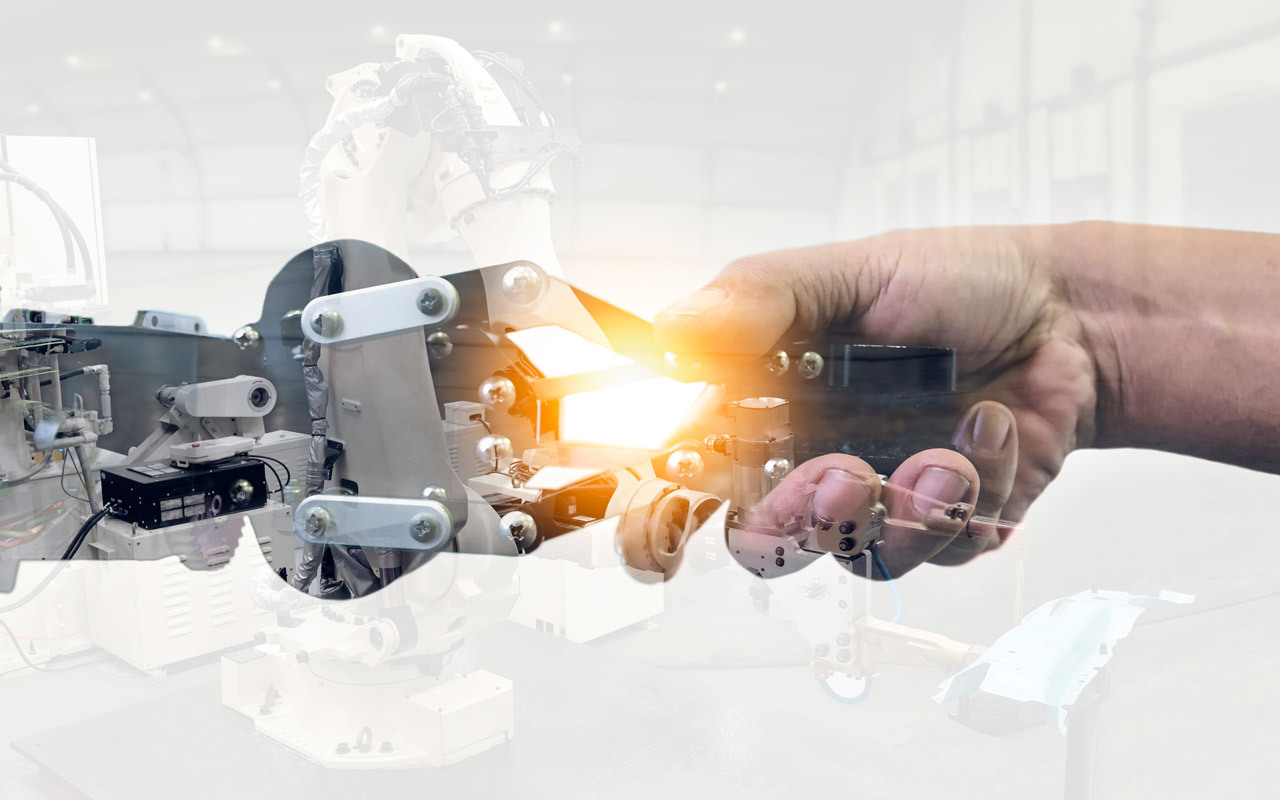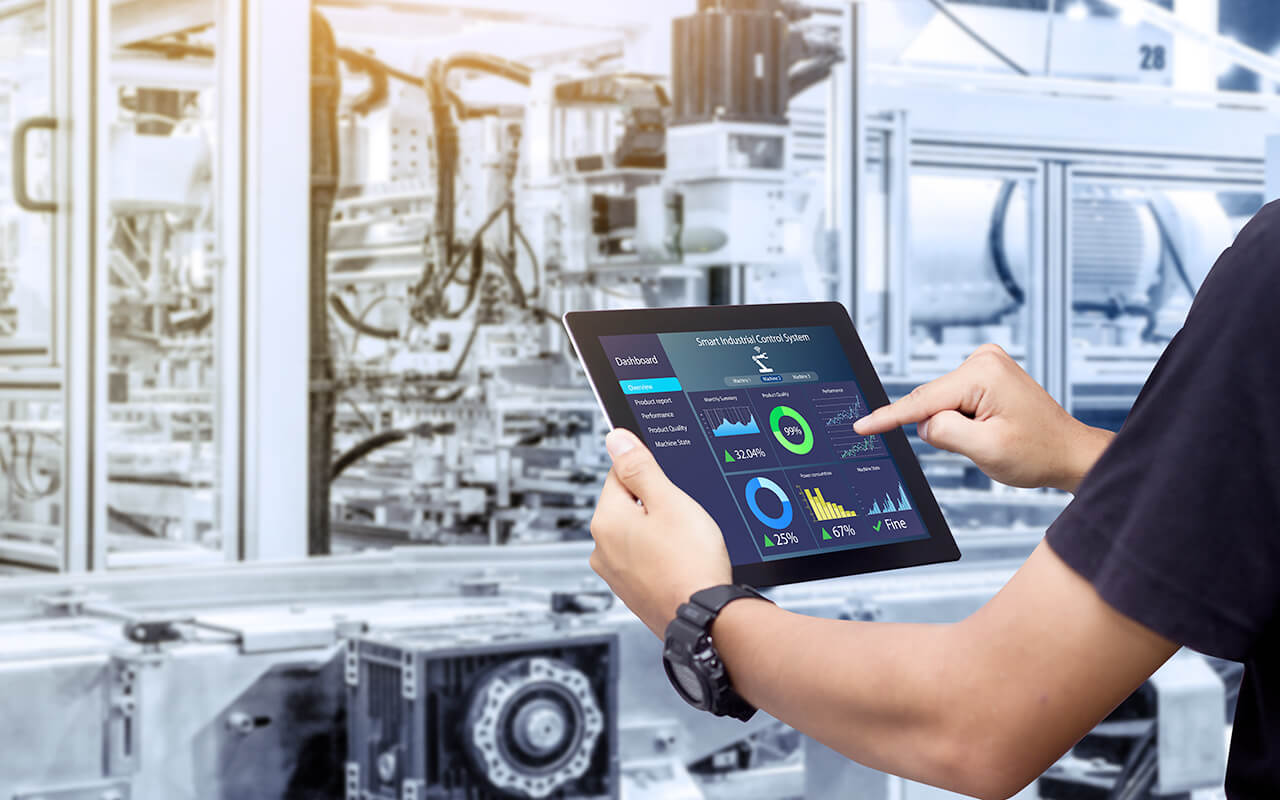19/10/2022
Analog manufacturing vs. Industry 4.0 – The state of the German industry today and how to catch up

Ten years have passed since broad sections of German industry first promoted Industry 4.0 as a new model. After the steam engine, the assembly line and the computer, smart factories represent the fourth industrial revolution. In contrast to analog production, manufacturing in Industry 4.0 combines state-of-the-art information and communication technology. Digitally networked systems and production processes enable products to be manufactured faster, better, more efficiently and in a more individualized way. But where does German industry stand today?
Status quo: Industry 4.0 in Germany
According to the Bundesministerium für Wirtschaft und Energie (BMWi - Federal Ministry for Economic Affairs and Energy), 95 percent of companies in Germany recognize Industry 4.0 as an opportunity. The proportion of companies that are already using Industry 4.0 applications for themselves is 60 percent. The importance of Industry 4.0 for the competitiveness of German industry is shown by the fact that 91 percent of companies now see it as a prerequisite. Three quarters of the industrial companies surveyed also believe that Industry 4.0 reduces CO2 emissions - another success factor that is likely to become even more important quickly in the near future. Ten years after Industry 4.0 was first advertised in this country, it is clear: Those who use it sensibly for themselves, and no longer rely solely on analog manufacturing, can modernize and improve sustainably.
Networked production as the foundation of Industry 4.0
Networked production forms the foundation of the much-discussed Industry 4.0. Intelligent, digitally networked systems enable largely self-organized production in this context. According to the BMWi, 28 percent of SMEs have fully networked production, while 38 percent state that they have partially networked their production. However, 29 percent have not yet networked their production at all and must fear that they will sooner or later be left behind by the competition. Because when people, machines, systems, logistics and products communicate and cooperate directly with each other, flexible production of even unique pieces becomes possible. The more flexible manufacturing becomes, the more complex the workflows often become, however, for example due to a larger number of suppliers, smaller production units and different time windows for production. To manage this complexity, specialized software is used to achieve strict compliance with norms and standards that are important for this purpose.
Select digitalization measures
When selecting digitalization measures, it is important to strike a balance between feasibility and relevance for your own company. In the first step, it is therefore advisable to assess the company's own level of digital maturity and its potential for digitalization. If we look at the example of a mid-sized company that manufactures highly individual products, such as a compressor station consisting of up to 1,000 different components, we see that the compressor itself, the main component, is manufactured with a high degree of vertical integration in Germany, while other components are sourced internationally. On the one hand, this makes production planning and control as well as the synchronization of logistics complicated. On the other hand, however, there is also great potential here for digitalization measures. In such a complex use case, digital data management is extremely helpful because it can precisely record and track each of the individual components - for example, with track-and-trace systems. But not everything that can be digitized needs to be digitized. Therefore, it is now necessary to check with production managers, logisticians, and planners which measures are really effective in the first step. After that, the company's own level of digitalization maturity and useful potential for further digitalization can be determined. The next step is to formulate and implement a suitable strategy. In any case, it is important to avoid imposing digital solutions on a company simply for the sake of having the "digital" label. With an individually developed digitalization strategy, SMEs can ensure that their production is sustainably adapted to the standards of Industry 4.0 so that they also benefit from it to the greatest extent possible.


